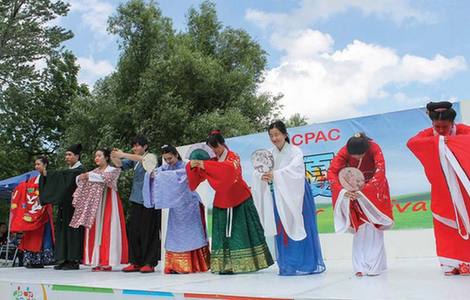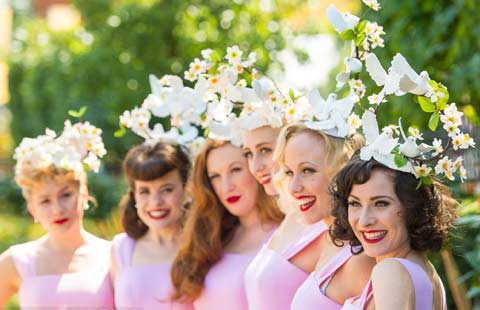Shakespeare gets a Chinese makeover
Updated: 2015-06-24 07:24
By Chen Jie(China Daily)
|
||||||||
"Shakespeare is every director's must-do. I directed scenes from Othello and Hamlet when I studied at the Central Academy of Drama in Beijing. But the older I got, the more I was unsure about directing Shakespeare. I felt I was not ready until I developed my unique approach and understanding of the story," Wang says.
"When the Globe Theater invited me to do a play as a representative of Chinese theater, I felt it an opportunity to do a totally Chinese edition for a global audience."
The Globe Theater first wanted him to do Henry V. But Wang says he loves the Bard's tragedies, so he proposed to do either Macbeth, Richard III or Antony and Cleopatra.
Wang moves the story of British royalty to a Chinese palace but the personality of each character remains unchanged and the idea of fate is maintained.
"Shakespeare's hilarious horror-show of power and paranoia is timeless and universal and that's what I want to interpret in this Chinese adaption," says Wang.
To highlight the Chinese characteristics, Wang uses one table and two chairs which are unique props in the Peking Opera. Lady Anne is performed by a Peking Opera actress with a costume and performance styled on Peking Opera. A live band playing traditional Chinese percussion instruments accompanies the performance.
Some characters wear wooden full-face masks from nuoxi, a thousand-year-old opera popular in Southern China.
The back curtain features Chinese artist Xu Bing's "square-word calligraphy".
Xu devised a method of writing English words in rectangular arrangements that resemble Chinese characters. On the back curtain, you can see Xu's writing of such English words as "war", "desire", "destroy", "nightmare" and "curse" in Chinese-style calligraphy.
- Heat wave kills 748 people in Pakistan's Karachi
- S. Korea protests DPRK's sentencing of 2 detainees
- Myanmar's new ceasefire talks likely to be held in Thailand
- Earthquake-stricken Nepal all set to host reconstruction conference
- The world in photos: June 15-21
- Polish airline, hit by cyber attack, says all carriers are at risk

 Across Canada(June 26)
Across Canada(June 26)
 Turning metal waste into robot-like artwork
Turning metal waste into robot-like artwork
 Man breaks record for being buried alive
Man breaks record for being buried alive
 Ten photos you don't wanna miss - June 24
Ten photos you don't wanna miss - June 24
 Three ships stranded as tropical storm Kujira hits S China
Three ships stranded as tropical storm Kujira hits S China
 Top 10 most valuable Chinese brands of 2015
Top 10 most valuable Chinese brands of 2015
 Ten photos you don't wanna miss - June 23
Ten photos you don't wanna miss - June 23
 The world in photos: June 15-21
The world in photos: June 15-21
Most Viewed
Editor's Picks

|

|

|

|

|

|
Today's Top News
Xi: Bilateral ties should be kept on course
Chinese, US leaders meet with CEOs
Kerry praises US-China on climate efforts
Liu calls for more 'she power'
Vice-premier calls for more 'she power'
US spied on French presidents, officials, reveals Wikileaks
Australia commits $718m for China-initiated bank
BOC denies illegal activity in Italy
US Weekly

|

|






